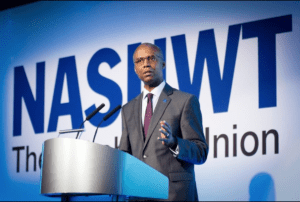

As more pupils begin to return to school after Lockdown, Joe Denny worries what advice the Government are following. He has great concern for his pupils who are mainly BAME and are at a higher risk according to SAGE advice.

From Monday (June 1st, 2020), schools across the UK will begin to allow more pupils to return. Headteachers and Senior Leadership Teams have worked day and night to absorb the glut of Government guidance, plan the safe reintroduction of some pupils to the classroom and communicate those plans to staff, parents and carers.
I have closely followed the contributions from scientists in search of reassurance throughout the lockdown, from Chief Medical Officer Professor Chris Whitty, Chief Scientific Advisor Sir Patrick Vallance and other members of the Scientific Advisory Group for Emergencies (SAGE) advising the Government, to those involved in medical trials in search of a vaccine and those involved in the collection and distribution of data. I find science refreshingly honest and its conclusions trustworthy in a way politics can never be.
As such, I was very interested to read the SAGE advice regarding the models for various scenarios which could enable schools to open to greater numbers of pupils. Given the Government has remained committed to “following the science”, I expected to see the advice point to the reintroduction of Early Years, Year 1 and Year 6 as the safest scenario, based on the best available data and consensus among the SAGE members.
What became clear as I read the advice was that the Government’s strategy was actually not one of the options modelled by SAGE. This means we do not know how this model is expected to impact the rate of infection, nor do we know whether the Government has received any advice about it. I submitted a question for the daily briefing last Friday in an attempt to find out more, but unsurprisingly my question was overlooked in favour of further discussion of the actions of Dominic Cummings.
There are numerous points in the SAGE advice which have been completely overlooked in the official guidance to schools. Thankfully, unions have encouraged schools to address some of these. I was particularly startled when I read the following section, which highlights an additional risk to Black, Asian and Minority Ethnic people.
“Households with BAME & adolescent or young adult members may create greater susceptibility among children to the virus for different reasons. BAME individuals may be more susceptible because of the greater prevalence of frontline medical and care work.”
All of the 30 pupils in my class are BAME people. Over 90% of the 650 pupils in my school are BAME people, as are a number of school staff. Yet this suggestion of additional susceptibility doesn’t warrant a mention. If I hadn’t read the SAGE advice in full (and I imagine most people have not), I wouldn’t know about it. There has been one newspaper report, from the Guardian, highlighting the issue.
Admittedly, many schools will have smaller numbers of BAME pupils and staff than my school. If, as the advice suggests, the increased risk is linked to the working environments of pupils’ family members, then it doesn’t necessarily apply to everyone of a certain ethnicity. I still believe it is a matter of public interest that people should be informed if they are considered to be at increased risk in the opinion of the top scientists advising the Government. People can then choose to take additional precautions and make informed decisions in terms of allowing their children to return to school.
Dr Patrick Roach, General Secretary of the NASUWT union, called upon the Government to ensure they meet their statutory duties in terms of the Public Sector Equality Duty and the
Equality Act 2010. In the letter, dated 26th May, Dr Roach called for “urgent clarification” on the matter, “including the need to prevent further discriminatory impacts related to the transmission of the Coronavirus”.

=68.ARC6-hi9YNgBpq7QTqWu3FMpHiRIKTmGHicJcyVCi3DUtj4YT9AYNBG4eHsJwynKvHg7AQz9TAoDMsPbSHpb1gv-JiBtEMBn855Vv5BUzS-KccSzQT_41wLXQVXcdNhUcyIEsi837bRe0TjjclyJGKJ3vIZiRwxiutxO4_cISP9VUZ5JpfTlLHCw4ZmMDRyEvTywPGpY11CSXX0XZF6CHFDGS5ST_zTaeR-pa290d1_Y60TqSvsMcivc_kxeTlWXNnuHITG0VVRLks_kkBZH7ahEnrqwrc02Pn7azW_B-KYpWsSMggQeHlN1cqp2nDfbHAkPIPkCkudPrxTyrsJWCzx-IQ’ link_target=’_blank’ icon=’ue8f3′ font=’entypo-fontello’]